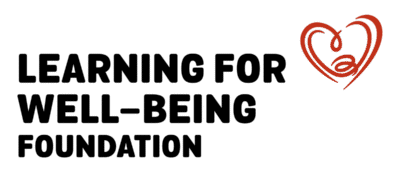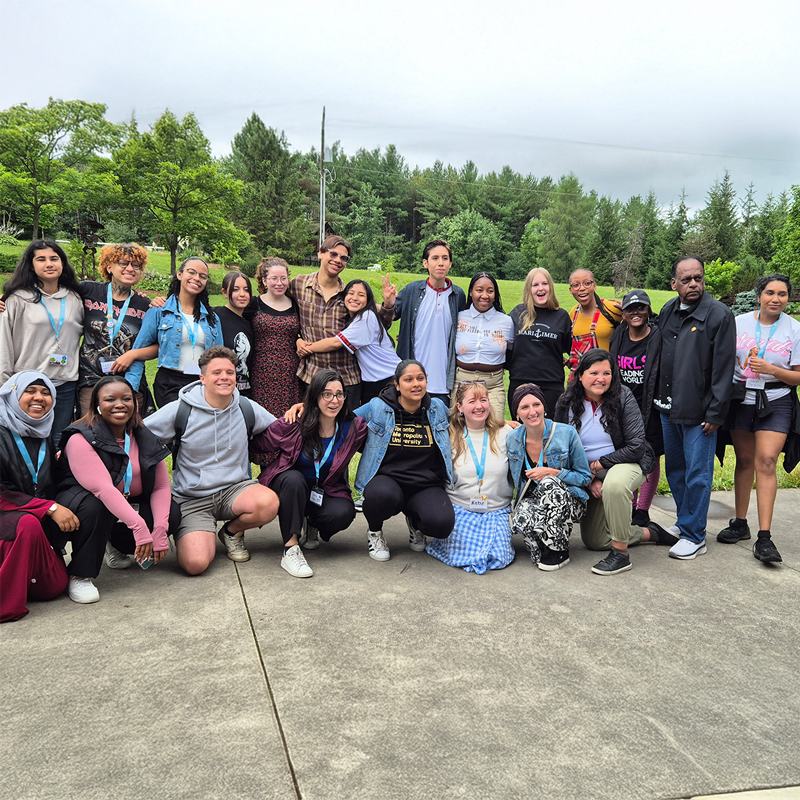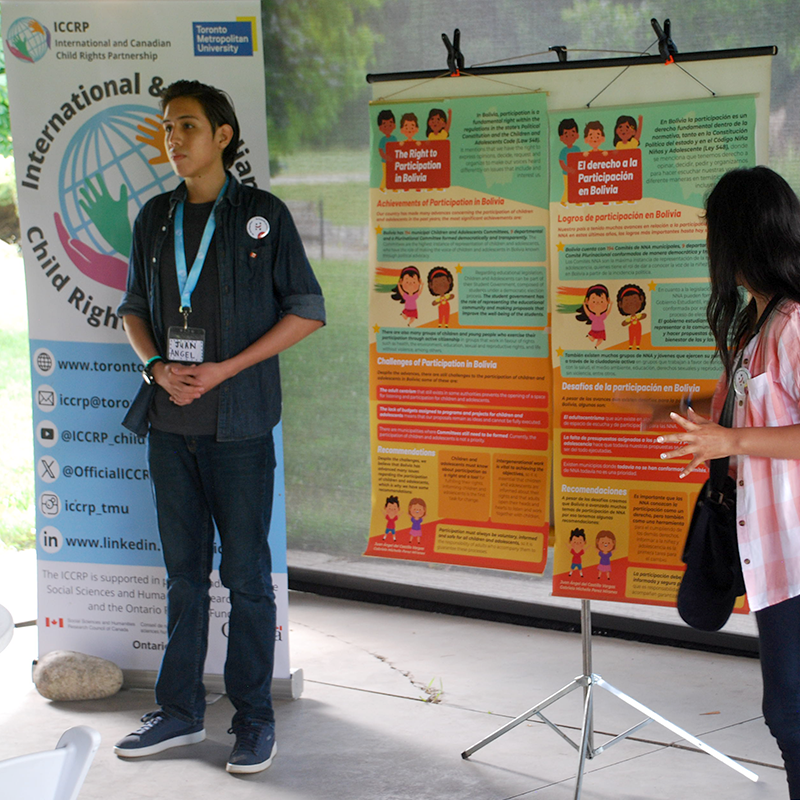In July 2024, the International and Canadian Child Rights Partnership (ICCRP) hosted its Partnership and Engagement Event in Toronto, Canada. The event convened researchers, practitioners, and young leaders from across the globe to explore how intergenerational partnerships can transform child rights advocacy.
Representing the Learning for Well-being Foundation and Act2gether Bolivia, Gabriela Perez and Juan Angel del Castillo brought a uniquely Bolivian perspective to the conversation. As members of ICCRP’s Intergenerational Advisory Committee (IAC), they joined peers and mentors to exchange tools, insights, and stories from their work on meaningful child participation.
“You don’t need a title to make a difference”
Gabriela shared her reflections on the journey from Bolivia to Canada:
“The trip to Canada was thrilling and daunting. I had so many questions, but meeting people passionate about activism filled me with hope and determination.”
Despite language challenges, she found strength in peer support:
“I learned that you don’t need an impressive title to be an activist—you just need the will to make a difference.”
The event highlighted how youth leadership and intergenerational relationships can co-create more inclusive and effective child rights initiatives:
“The experiences of older generations and the energy of youth together make any project more complete and impactful.”
Sharing Bolivia’s story
Gabriela and Juan Angel presented an infographic detailing Bolivia’s progress in youth participation—including school-based committees, democratic youth leadership structures, and formal feedback loops to public authorities.
“We shared how Bolivia is advancing, but also talked about challenges like adult centrism,” said Gabriela.
“It’s not just our problem—it’s shared globally,” she noted, emphasising the need for collective action.
Juan Angel reflected on the evolution of his leadership mindset:
“Meeting people with vast experience changed how I see my future. True leadership is about listening and staying open to growth—no matter your age or position.”
Expanding perspectives and building solidarity
Gabriela described the event as transformative:
“I met people from Africa, Brazil, Scotland—each with a unique perspective on child rights. It expanded my view of what’s possible in Bolivia, including how we might integrate indigenous languages into public policies.”
Juan Angel echoed her reflections, especially regarding international recognition of Bolivia’s model:
“People admired our system of youth committees, especially our democratic selection processes and our ability to give feedback to national authorities.”
A shared vision for the future
For both youth leaders, the experience broadened their outlook on what’s possible in Bolivia:
“I met people from Africa, Brazil, Scotland—each with a unique perspective,” said Gabriela. “It inspired me to think about how we can integrate indigenous languages into public policies.”
Juan Angel added: “People admired our youth committees and how we give feedback to national authorities—it showed our work has global value.”
As ICCRP moves forward, and the Foundation continues to champion youth participation through Act2gether Bolivia, Gabriela and Juan Angel’s journey stands as a powerful reminder that participation is not just a right—it’s a catalyst for a more inclusive and just world.





